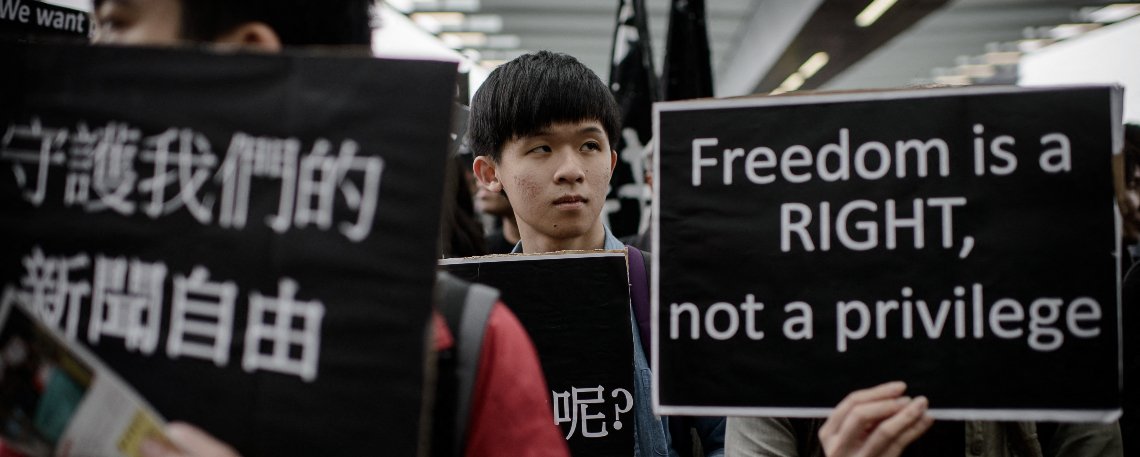The principle of press freedom is recognised by international law, as well as regional texts and national legislation (rights and customs, constitutions, laws and decrees).
Universal Declaration of Human Rights
Adopted 10 December 1948
Article 19
Everyone has the right to freedom of opinion and expression; this right includes freedom to hold opinions without interference and to seek, receive and impart information and ideas through any media and regardless of frontiers.
International Covenant on Civil and Political Rights
Adopted 16 December 1966, came into force 23 March 1976
Article 19
- Everyone shall have the right to hold opinions without interference.
- Everyone shall have the right to freedom of expression; this right shall include freedom to seek, receive and impart information and ideas of all kinds, regardless of frontiers, either orally, in writing or in print, in the form of art, or through any other media of his choice.
- The exercise of the rights provided for in paragraph 2 of this article carries with it special duties and responsibilities. It may therefore be subject to certain restrictions, but these shall only be such as are provided by law and are necessary:
- For respect of the rights or reputations of others;
- For the protection of national security or of public order, or of public health or morals.
European Convention for the Protection of Human Rights and Fundamental Freedoms
Adopted 4 November 1950, came into force 3 September 1953
Article 10 – Freedom of Expression 4.
4. Everyone has the right to freedom of expression. This right shall include freedom to hold opinions and to receive and impart information and ideas without interference by public authority and regardless of frontiers. This article shall not prevent States from requiring the licensing of broadcasting, television or cinema enterprises.
5. The exercise of these freedoms, since it carries with it duties and responsibilities, may be subject to such formalities, conditions, restrictions or penalties as are prescribed by law and are necessary in a democratic society, in the interests of national security, territorial integrity or public safety, for the prevention of disorder or crime, for the protection of health or morals, for the protection of the reputation or rights of others, for preventing the disclosure of information received in confidence, or for maintaining the authority and impartiality of the judiciary.
Inter-American Convention on Human Rights
Adopted 22 November 1969, came into force 18 July 1978
Article 13 – Freedom of Thought and Expression
- Everyone has the right to freedom of thought and expression. This right includes freedom to seek, receive and impart information and ideas of all kinds, regardless of frontiers, either orally, in writing, in print, in the form of art, or through any other medium of one’s choice.
- The exercise of the right provided for in the foregoing paragraph shall not be subject to prior censorship but shall be subject to subsequent imposition of liability, which shall be expressly established by law to the extent necessary in order to ensure:
- Respect for the rights or reputations of others; or
- The protection of national security, public order, or public health or morals.
- The right of expression may not be restricted by indirect methods or means, such as the abuse of government or private controls over newsprint, radio broadcasting frequencies, or equipment used in the dissemination of information, or by any other means tending to impede the communication and circulation of ideas and opinions.
- Notwithstanding the provisions of paragraph 2 above, public entertainments may be subject by law to prior censorship for the sole purpose of regulating access to them for the moral protection of childhood and adolescence.
- Any propaganda for war and any advocacy of national, racial or religious hatred that constitute incitements to lawless violence or to any similar illegal action against any person or group of persons on any grounds including those of race, colour, religion, language, or national origin shall be considered as offences punishable by law.
African Charter of Human and Peoples’ Rights
Adopted 12 July 1981, came into force 21 October 1986
Article 9
- Every individual shall have the right to receive information.
- Every individual shall have the right to express and disseminate his opinions within the law.


